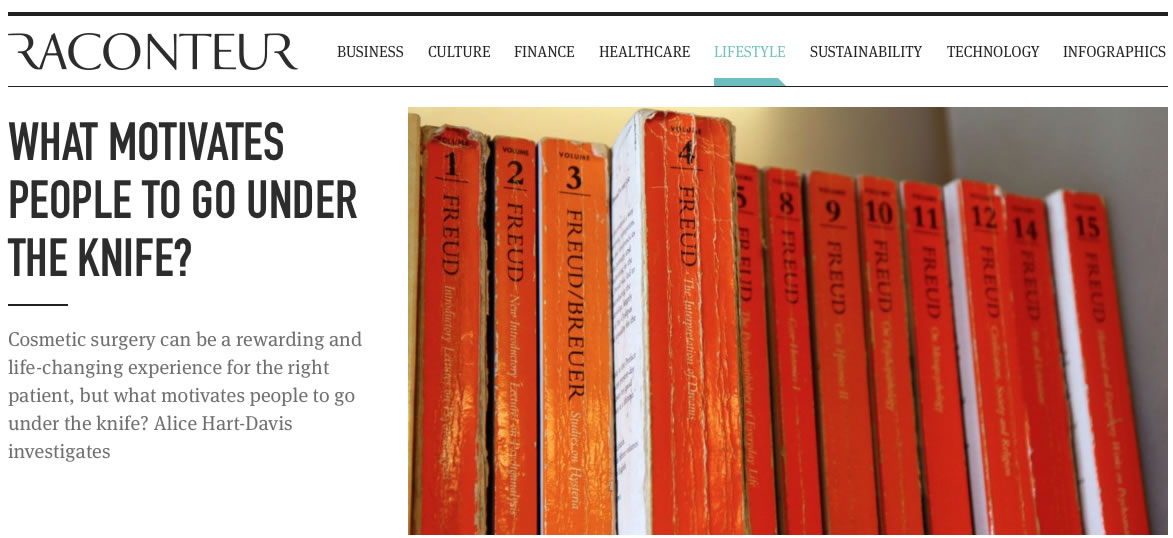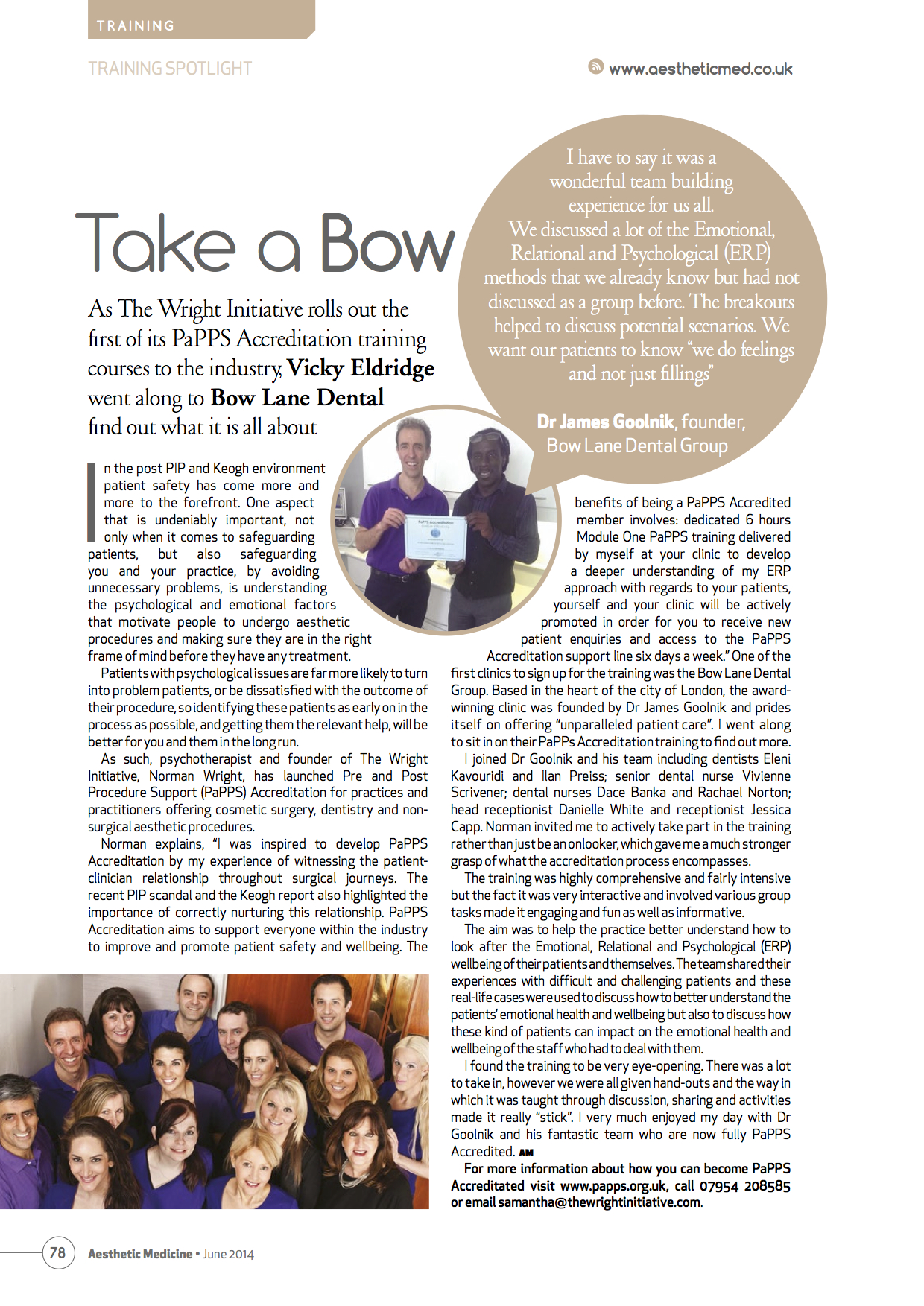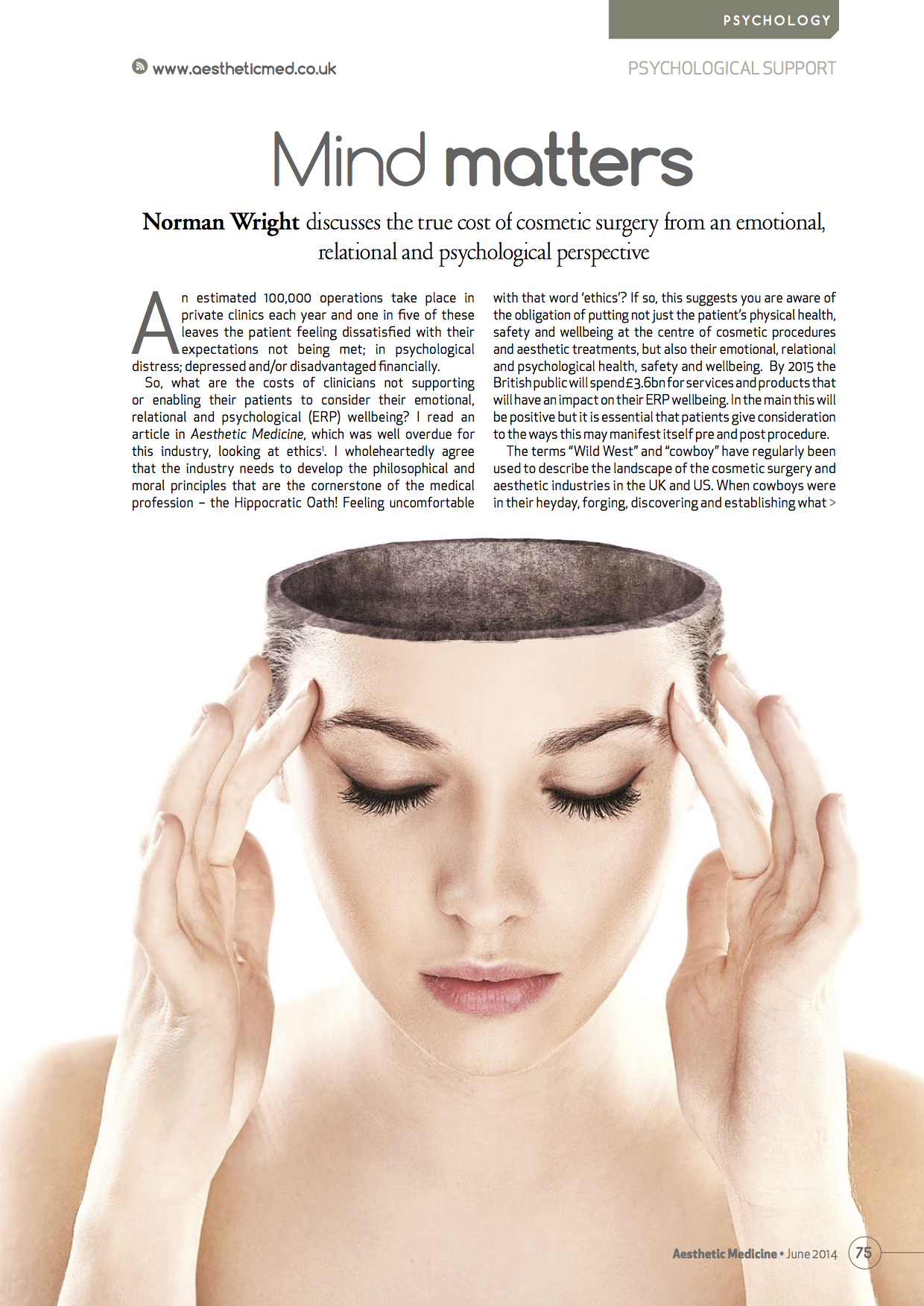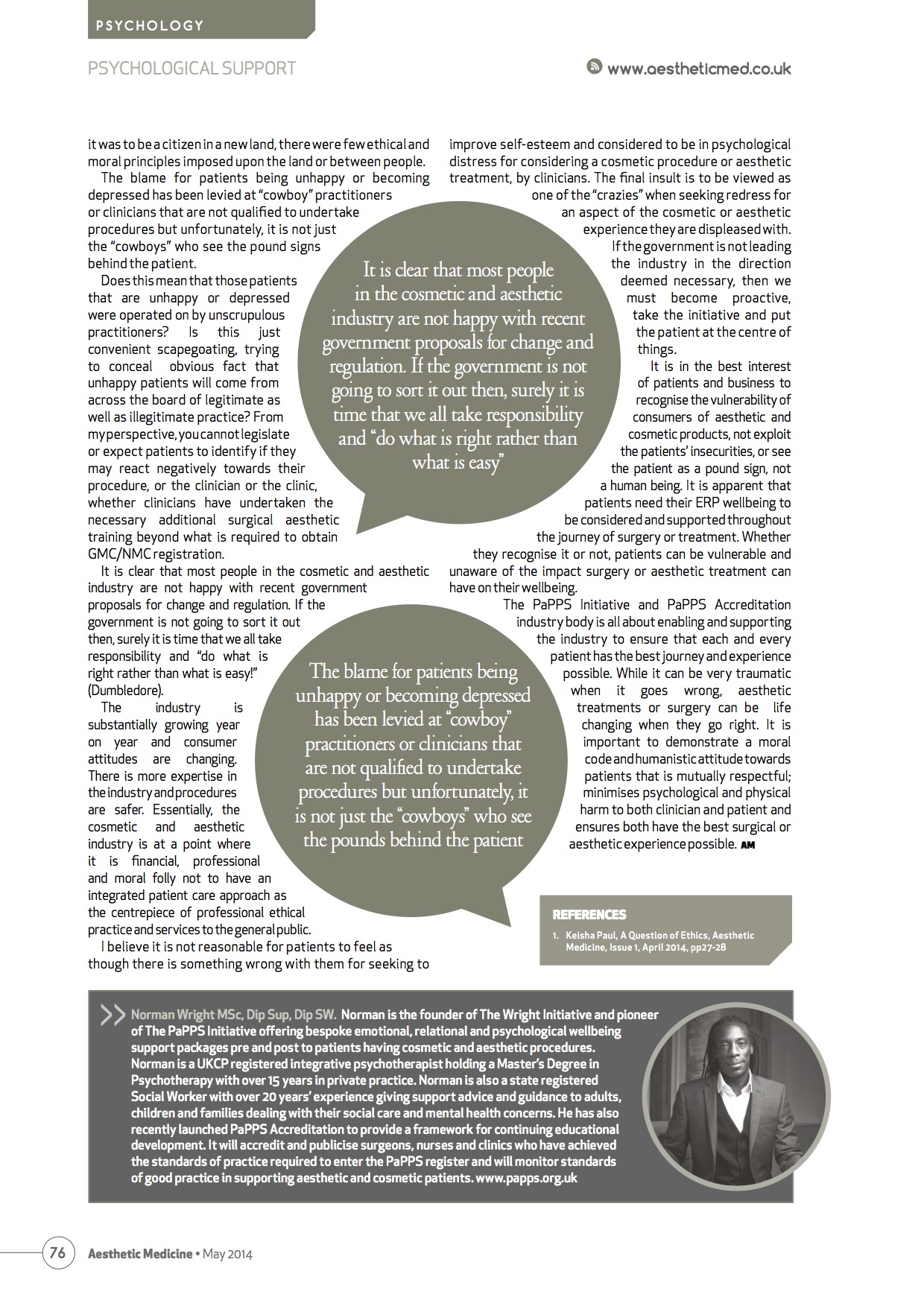
WHAT MOTIVATES PEOPLE TO GO UNDER THE KNIFE?
Cosmetic surgery can be a rewarding and life-changing experience for the right patient, but what motivates people to go under the knife? Alice Hart-Davis investigates.
Trying to get a fix on the psychology of cosmetic surgery is a bit like looking through a kaleidoscope. Shift the focus a bit and the whole picture changes. Is surgery empowering, enabling women – and, increasingly, men – to change their looks as they see fit or is it simply indulging vanity? It depends who you ask.
I would not advise surgery if a patient has very high expectations
As Norman Wright, a psychotherapist who works with cosmetic surgery patients, points out, given the numbers of people suffering with body dysmorphic disorder – 600,000 cases diagnosed and many more, surely, undiagnosed – the likelihood of prospective cosmetic surgery patients having underlying emotional or psychological issues is high, which is a problem for surgeons.
He encourages doctors and surgeons to “see the person behind the patient”. He says: “What I’m trying to do is not to talk people out of having cosmetic surgery, but to get surgeons to give patients the chance to explore the emotional and psychological issues of the procedure that they have chosen to have.”






